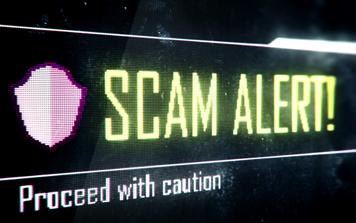
4 minute read
OUC on Utility Scam Awareness Week
Many electric, water and natural gas customers throughout the country are targets of utility scams each day. In recognition of Utility Scam Awareness Week (Nov. 16-20), OUC is sharing the following tips that will help Central Floridians protect themselves from falling victim to utility scams:
•If you receive a phone call or email demanding that you pay a certain amount or your utility services will be cut off, hang up the phone or delete the email. This is a scam.
•If someone claiming to represent OUC comes to your home and makes a similar request, close the door and call police. This is a scam, too.
•Do not disclose personal information – including Social Security number, credit card number or bank account.
•Do not click on links in text messages or emails or reply to voicemails that warn you’re about to lose utility services.
•Ensure your virus protection software is up to date on your computer, and do not click on pop-ups claiming you must pay your utility bill immediately.
•Do not wire money to anyone claiming to represent OUC or another utility provider.
•Like most utility companies, OUC notifies customers in writing when an account is past due and follows up with a phone call before disconnecting services. Customers signed up for proactive alerts are also informed of their account status.
•OUC does not demand immediate payment and never sends employees to customers’ homes to collect payment or warn them of disconnection.
•Visit OUC.com and login to your account or call 407-423- 9018 to check your account status.
•Customers who suspect they’ve been the targets of utility scams should contact OUC at customerservice@ouc.com or 407-423-9018 and notify their local law enforcement agency. Victims can also file a complaint with the Florida Attorney General’s Office at MyFloridaLegal. com or by calling 1-866-9NOSCAM.
Fall Back to Watering One Day a Week – andOther Tips for Conserving Water
With the return to Standard Time on November 1 came a mandatory change in the outdoor watering schedule, falling back to one day a week from two for residents of 16 Florida counties, including Orange.
Under watering restrictions set by the St. Johns River Water Management District (SJR- WMD), residential property owners with even numbered addresses may water only on Sundays, while those with odd-numbered or no addresses may water only on Saturdays. Nonresidential property owners may water only on Tuesdays. Customers are advised to water only when needed, and not between 10 a.m. and 4 p.m. The one-day-a-week watering rule is in effect until the second Sunday in March.
As you reset your outdoor watering schedule, it’s a good time to do some additional checks around your home to ensure you’re conserving as much water as possible. A few simple changes can help lower your water bill while also making sure there are no sneaky leaks around your home.
Here are some tips from OUC conservation specialists for conserving water both in and outside of your home:
• Water your lawn wisely. Irrigation accounts for more than half of Central Florida’s total water consumption – but there are ways you can minimize your impact. Water for no more than one hour per area of your yard, avoid watering on windy days, adjust sprinklers so they water the lawn, not the pavement, and avoid sprinklers that spray a fine mist. Make sure plants aren’t blocking sprinklers and turn off sprinklers when it’s raining.
• Check your automatic sprinkler system. Examine your system at least once every month or two for leaks, and broken sprinkler heads and promptly make repairs. Check for signs of broken or leaky sprinkler system pipes by looking for muddy or overgrown areas of turf. Make sure your sprinkler system’s timer/controller is operating correctly, as you’ve programmed it, so it operates on the right days, at the right times, for the right durations.
• Make a few changes outdoors. There are additional ways you can conserve water outside your home, aside from watering your yard. Clean driveways and sidewalks with a broom instead of a hose, and use a spray nozzle when washing your car to stop water flow between rinses. Cover your pool or spa to reduce evaporation and check for pool/spa leaks regularly, making repairs promptly.
•Saving water inside your home takes a few simple steps. Easy ways to save water now include taking shorter showers, turning off the water while brushing your teeth or shaving, washing only full loads in the dishwasher and clothes washer, filling the sink with water and turning off the faucet to wash dishes by hand, and using the garbage disposal sparingly. If you’d like to take it even farther: You can install water-saving shower heads and flush valves in toilets.
• Identify and repair leaks in your home. In a typical house, leaky toilets and faucets can waste hundreds of gallons of water each day, which means unnecessary water and sewer
charges on your utility bill. To find hidden leaks in your home, make sure no water is running in the house and observe your water meter. If the meter’s dial is moving, you may have a leak somewhere. Check for leaky faucets in and out of your home – a worn washer could easily be the issue. Inspect the water level in the toilet tank. If it’s too high, water is being wasted.
If you’ve followed all these measures and are still looking for more ways to conserve energy, schedule a free home energy and water efficiency audit via phone with an OUC Conservation Specialist. Each call typically takes less than an hour and is customized to your home and consumption. The specialist will explain your personal usage and provide useful solutions. OUC customers can schedule an audit by calling 407-423-9018 or visiting www. ouc.com/audit-inquiry.











